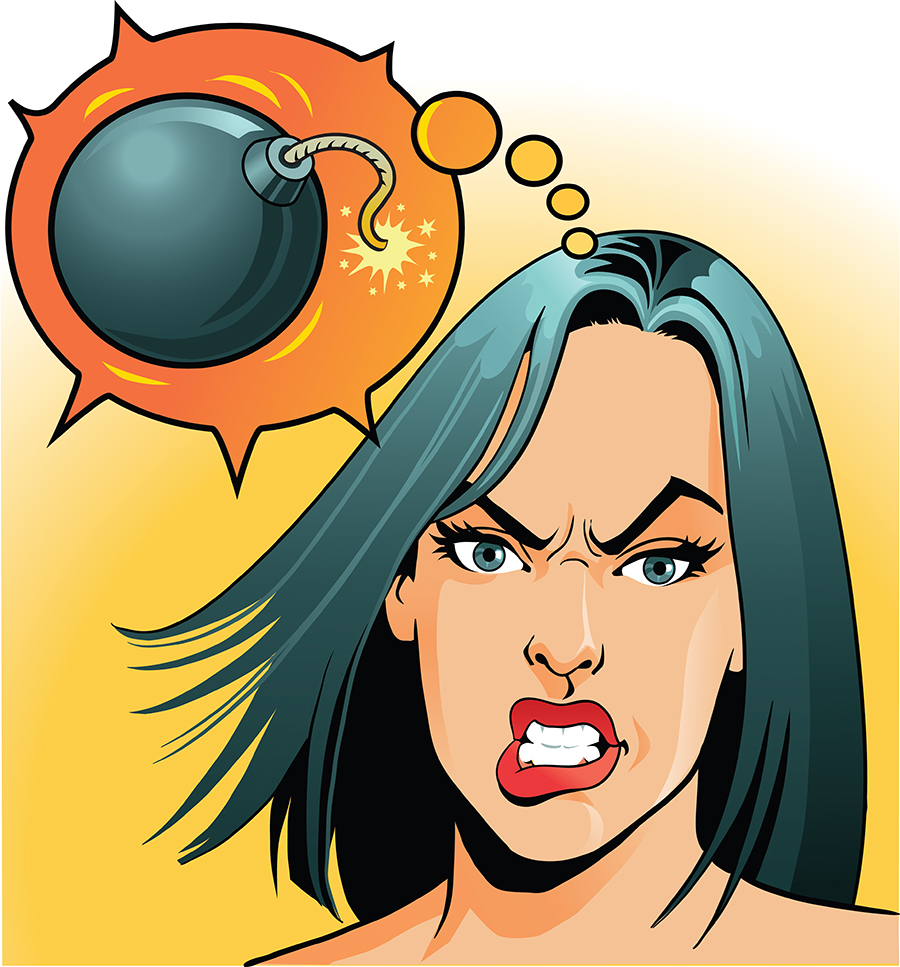Do You Need Anger Management?

By Cheryl Steinberg
So, let’s just start out by saying the obvious: Nobody’s perfect and there’s no such thing as only perfect days. With that said, it’s good practice to check in with yourself from time to time to see how you are feeling and if anything is bothering you. If there is something on your mind, it’s also good practice to address it then and there, rather than bottling it up until you explode in an angry tirade on some poor unsuspecting soul like the cashier at the grocery store or your child who just asked “why” one too many times.
We all have our breaking points. But do you fly off the handle at the littlest of inconveniences? Do you find that you react before you think? Do you think you need anger management?
Do You Need Anger Management?
Again, there are times that anger is justified. But, excessive anger is quite another thing, altogether. How do you know if you need anger therapy for your feelings of anger and aggression? Here are some signs that you may need anger management:
- You have unstable or broken relationships because of how you speak to people.
- You lose jobs because of poor communication skills.
- You have had trouble with the law because of impulsive actions.
You might even experience physical effects of your anger, such as:
- Tingling
- Heart palpitations or tightening of the chest
- Increased blood pressure
- Headaches
- Pressure in the head or sinus cavities
- Fatigue
Anger Problems: What You Can Do
Therapy is a viable – and great – option when it comes to addressing your anger issues. Having a safe place to go where you can reflect on your personal situation with the guidance of a professional is probably the best way to begin the process of addressing your anger.
It’s important to remember that expressing anger is not only OK, it’s important, and it’s healthy (remember the bottle analogy above?). But, it’s your responsibility to choose how you go about expressing yourself. Anger management therapy can help you regain control over your emotions so you can react appropriately to situations that might cause your anger to flare.
Anger Management and Your Health
How to go about expressing your anger can look different ways to different people but, again, it’s important to know that it’s OK to feel – and express – anger. This is particularly important to talk about when it comes to being a woman and experiencing anger. Anger seems to be a male thing; like, only men get to feel anger and express it. But, women are human beings, too, who experience a full range of emotions, including anger.
When it comes to expressing anger in a healthy way, there are some very good reasons to learn how to manage your temper, including:
Anger management could prevent injury.
Data from 2,517 hospital visits due to injury in 2006 showed that about one-third felt “irritable” before the injury occurred, and one out of five admitted that they had felt either angry or hostile beforehand.
Anger management could help your heart.
A recent study of 62 people who have implanted defibrillators – a pacemaker-like device – were directed to recall anger-related events, which then increased their chances of experiencing arrhythmia (irregular heartbeat). Other studies have shown that frequent and intense feelings of anger increase the risk of heart disease over the course of a decade.
Anger avoidance leads to more anger, depression.
Talking about bottling anger…if you have a tendency to swallow yours but then sulk about the situation later, replaying the events that made you mad, this can actually breed more anger and depression, according to a study of 52 married couples in Washington State. This is more common among women than it is men. Most likely, this is because – again – it’s more socially acceptable for men to demonstrate their anger.
Lots of times, people in active addiction – meaning that they are actively using and abusing alcohol and/or other drugs – seem to be super sensitive and are ready to anger, at the drop of a hat. Being in the grip of addiction can make emotions difficult to deal with or even difficult to recognize. If you or someone you love is struggling with substance abuse or addiction, please call toll-free 1-800-777-9588 to speak with an Addiction Specialist today. We are here 24/7.
